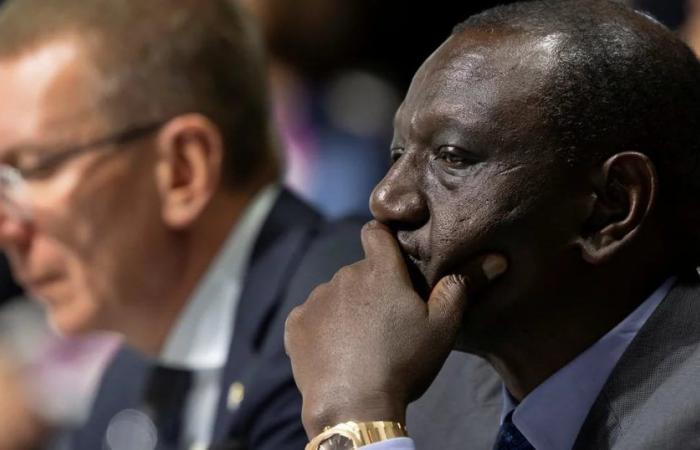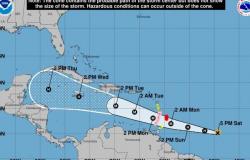Although the balance of Kenya is occasionally affected by outbreaks of political instability, the country is generally considered to be quite stable, prosperous and liberal. However, these comfortable assumptions were shaken by the tax unrest, which reached its lethal peak on June 25. After overwhelming police in the capital Nairobi, protesters stormed Parliament, set fire to a section of it, seized the mace and forced terrified MPs to flee. Security forces responded with live fire, killing at least 23 people.
Kenya is now in uncharted territory. Not only was Parliament invaded, but protests also broke out in at least 35 of the 47 counties, including in the heart of the highlands of Kenya. William Rutoits president suddenly under siege. Even more striking than the widespread nature of the protests were the attacks on the offices of Kenyan parliamentarians and local government officials seen as aligned with Ruto’s fiscal policies. Rarely has hatred of the political class been felt so acutely.
However, the most pertinent break with the past is the nature of the protest movement itself, which reeks of revolution. These protests are the first in Kenya with a more classist than ethnic tone. The movement behind them has been driven by young people who proudly wear their Gen Z identity and have spread their message through TikTok videos and memes on social media. “We are not our parents,” many say.
They appear to be leaderless and have distanced themselves from all politicians. “The protests are not directed or led by political leaders,” says John-Allan Namu, a Kenyan journalist. The core of the movement is Kenya’s small middle class.but has found greater appeal. Many of those who joined the protests were poor slum dwellers like Kelvin Ondiek“This is a new kind of protest,” he said, shielding himself from tear gas. “This time, we can actually make a difference.”
Faced with a new threat, Ruto, normally a skilled strategist, has made repeated mistakes, underestimating the scale and nature of the opposition against him and then miscalculating his response. The president’s first misjudgment stemmed from a belief that alienating Kenya’s small middle class would have few tangible consequences. After inheriting a debt-ridden country in 2022 from his predecessor, Uhuru Kenyatta, and having campaigned on a populist platform in favor of the poor, he had no choice but to increase taxes to avoid non-payment. The tax increases also allowed the president to pay for poverty relief plans, including subsidies for fertilizer and low-cost housing.
Alienating 17% of workers in formal jobs may have seemed a small price to pay to gain the support of Kenya’s much larger masses. The likelihood of them taking to the streets seemed small. They were just “cool kids,” he scoffed. David NdiiRuto’s chief economic adviser.
But enraged by another round of tax increases in the 2024 budget, unveiled earlier this month, keyboard warriors began to show real fight. As the protests increased, Government complacency gave way to panicSome drew comparisons to the 2011 Egyptian uprising, which was also led by an under-appreciated middle class and fueled by social media.
Many of Ruto’s responses seemed to mirror those of Hosni Mubarak, the Egyptian president overthrown by the Tahrir Square uprising. On the one hand, he tried to placate the protesters by offering desperate concessions that only further angered the public. On the other, he responded with draconian force. Prominent social activists disappeared in the hours before the June 25 protests began. Later, as order disintegrated, Ruto ordered the army to mobilize and vowed to crush the “traitor” protesters. On June 26 he appeared to capitulate completely, withdrawing the hated finance bill.
But a movement that began by opposing taxes is now demanding Ruto’s resignation. Angered by so many deaths and sensing weakness from the president, protesters may try to press their advantage. Even if Ruto survives, he will be severely weakened. A president forced to veto his own budget cannot be any other way.
© 2024, The Economist Newspaper Limited. All rights reserved






